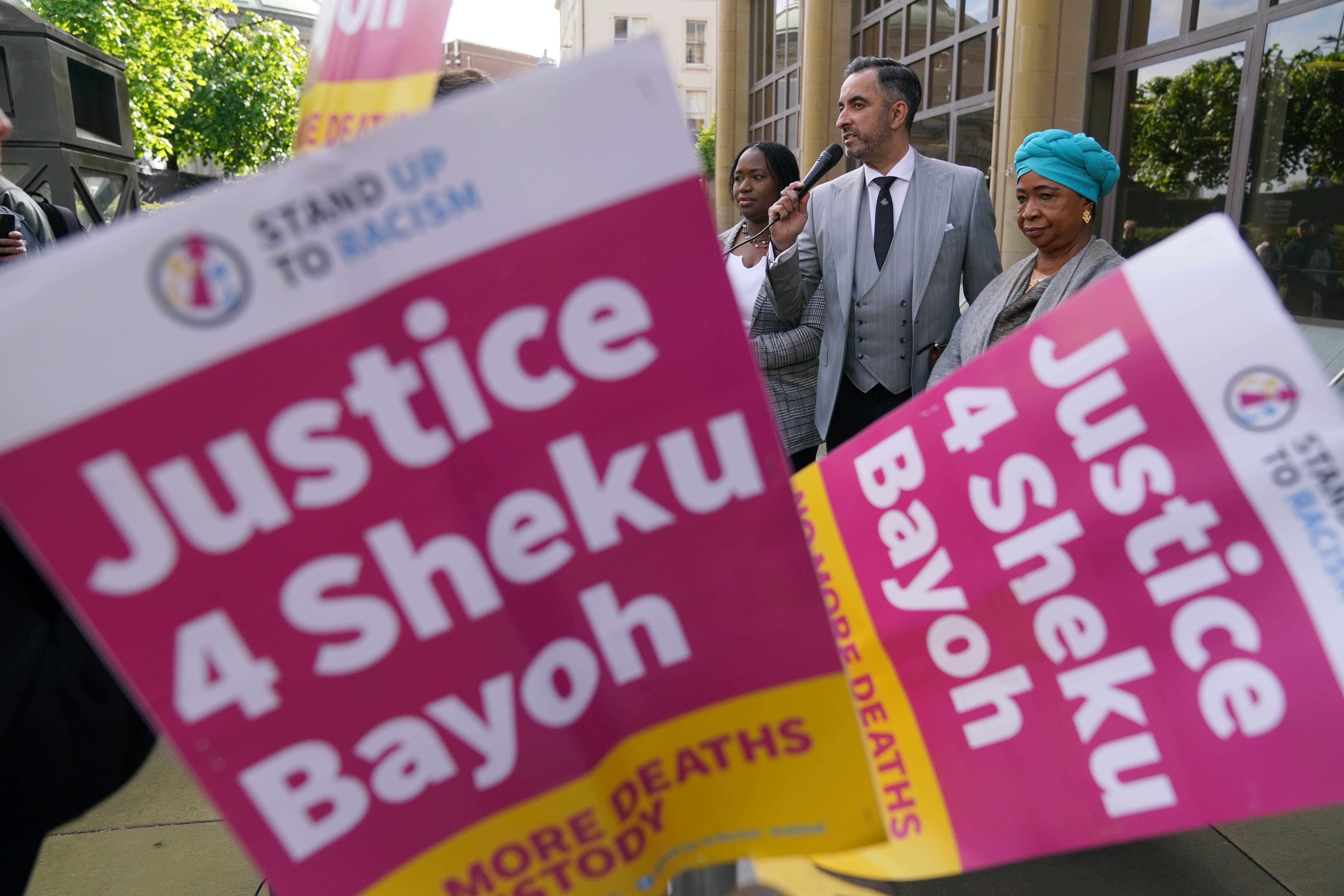Death in custody of black man would automatically lead to tension, inquiry told
An inquiry into the circumstances around Mr Bayoh’s death is continuing.

Your support helps us to tell the story
From reproductive rights to climate change to Big Tech, The Independent is on the ground when the story is developing. Whether it's investigating the financials of Elon Musk's pro-Trump PAC or producing our latest documentary, 'The A Word', which shines a light on the American women fighting for reproductive rights, we know how important it is to parse out the facts from the messaging.
At such a critical moment in US history, we need reporters on the ground. Your donation allows us to keep sending journalists to speak to both sides of the story.
The Independent is trusted by Americans across the entire political spectrum. And unlike many other quality news outlets, we choose not to lock Americans out of our reporting and analysis with paywalls. We believe quality journalism should be available to everyone, paid for by those who can afford it.
Your support makes all the difference.The fact a man who died after being restrained by police was black and Muslim would “automatically” create potential community tensions, a senior police officer has told an inquiry into his death.
Sheku Bayoh, 31, a father-of-two, died after he was restrained on the ground by six police officers in Kirkcaldy, Fife, on May 3 2015.
In a third day of evidence to the Sheku Bayoh Inquiry, Chief Superintendent Nicola Shepherd was asked by Claire Mitchell KC, one of the lawyers representing the Bayoh family, further questions about her evidence, specifically related to her thoughts on the impact his death had on the community.
Ms Shepherd told the inquiry that deaths in custody “undoubtedly” have an impact on the community.
The fact that Mr Bayoh was black, that he was of Muslim faith, would automatically then create potential community tensions
“The impact on the community in a wider sense was absolutely recognised,” she said.
“The fact that Mr Bayoh was black, that he was of Muslim faith, would automatically then create potential community tensions within those communities and beyond those communities.
“I absolutely recognise that those were factors that could have the potential to raise concern.”
Ms Shepherd acknowledged to the inquiry there were concerns around deaths of some black men in custody both in the UK and in the United States.
She said: “History tells us that deaths in police custody are clearly going to have an impact. Mr Bayoh was black. That was going to have an impact, undoubtedly, on concerns within the community.
“If you’ve got the death of somebody in custody that’s being identified or perceived to have been identified to have a protected characteristic, then I think it’s understandable that particular community that person identifies as belonging to would be impacted.”
Ms Mitchell asked: “Why would the public and the press make links with him being a Muslim which would require the police to consider putting reassurance measures in place?”
Ms Shepherd responded: “I think they would make the links through past events that would suggest there may be measures then that have to be adopted to reassure those communities.”
On Thursday, the inquiry heard the former partner of Mr Bayoh, who is the mother of one of his two sons, found out about his death on social media.
Officers including Ms Shepherd have, during the inquiry, questioned the communication strategy following Mr Bayoh’s death.
Ms Shepherd told the inquiry on Thursday that the lack of details being shared publicly “made her job that bit more difficult” because she was unable to give local elected members a clear picture of events they could then communicate to their constituents.
Earlier this week, Detective Superintendent Patrick Campbell said there was a “reluctance” within the force to be more “overt” in the media strategy and that police could have been more pro-active in issuing statements and appealing for any witnesses or dashcam footage.
The inquiry, taking place before Lord Bracadale in Edinburgh, continues.